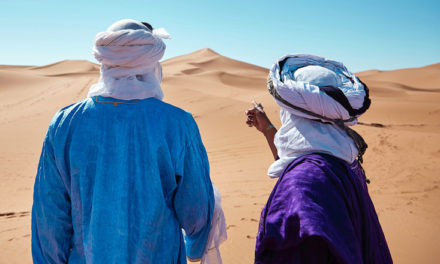Yield & Germinate
Tena tātou katoa e te iwi mīhana… (Greetings to all the people in mission),
This month’s whakataukī (proverb) is: “Ki te mea ka taka te kākano ki te wāhi e tika ana ka tinaku, ā, ka pihi ake he tipu hou.” (If a seed falls in the right place it will germinate and a new seedling will sprout). On August 11 Missions Interlink hosted the “Mitigate Conference” focused on identifying risks that might be somewhat ‘hidden’ from missions agencies and ministries, with a view to helping to mitigate those risks, threats or hazards. We were blessed with some wonderful experts in their fields who offered us their insights pro-bono. One of those was lawyer Steven Moe who flew up from Christchurch for the day. Steven works for Parry Field. Among his many activities and passions, Steven hosts a podcast called Seeds. There he interviews people about aspects of their life journey and contributions to the world. I was privileged to be a guest on the podcast back in July 2021. Steven introduced me to this month’s whakataukī, it is the guiding principle of his podcast along with a quote from Robert Louis Stevenson, “Don’t judge each day by the harvest you reap, but by the seeds that you plant”.
The gospel should be viewed as a seed that needs to grow and flourish indigenously.
I am not an avid gardener but I am fascinated by the power of seeds. I like to emphasise that the gospel should be viewed as a seed that needs to grow and flourish indigenously. Ideas in general are like seeds. They can be dropped into peoples’ minds and, at the right time, germinate to create the most powerful of transformations. It is the “ah-ha!” or “eureka” moment of realisation or revelation otherwise known as an epiphany. It is a sacred thing. When an idea suddenly becomes relevant, an entire lifetime of confusion can gain radical coherence. Messes become meaningful.
For seeds to germinate, the habitat needs to be just right. Downunder, we are now officially in spring time. Seeds that have been dormant for three seasons are suddenly sprouting. Conditions converge to trigger a response.
The way we have been doing things seems to be attracting diminishing returns, yet the gospel is arguably spreading faster and wider than ever before—just not by traditional missionaries nor in the Western world.
I cannot shake the notion that the season is changing for Christian missions. The timing just seems right. Heat is falling on the traditional (i.e. Western or Eurocentric) Christian world right now. A lot of rethinking is going on. The way we have been doing things seems to be attracting diminishing returns, yet the gospel is arguably spreading faster and wider than ever before—just not by traditional missionaries nor in the Western world. Is the heat (public criticism, exposure of abuse, theological decolonisation, believer disillusionment and deconstruction of their faith, morality clashes, etc. etc.) too much? Are we about to dry up an whither away as the new season takes hold, or is the heat germinating something new that is barely perceptible but, like daffodils and blossoms in August (the end of our winter), have we been seeing signs of change for some time?
Anyone who has read or heard me speak will know that I think the latter. Ideas that have been around for a while are starting to germinate with increasing frequency as the season turns from 550+ years of Eurocentric Christendom (and later, Evangelicalism) that grew with industrial or individualist values, to a confident and globally diverse World Christianity, informed by what I consider to be indigenous or collectivist values. I will not develop that further because I do so elsewhere. Suffice it to say, “the times, they are-a changin’” is coming to a head.
The visionary talk to motivate the church to release resources or engage in outreach and missions is not having the desired affect.
How then should our churches and missions respond? With defensiveness? Do we ‘circle the wagons’ or double down? I see that happening in some parts of the world, where any hint of a critique is rejected in favour of trying to generate more resource with clever ideas drawn from the latest industrial fads. But the visionary talk to motivate the church to release resources or engage in outreach and missions is not having the desired affect, according to the statistics.
Yet, the seed does not resist. As its habitat changes, the seed yields. It gives way. It breaks open. Dies. That which lay latent within is then able to come forth. It sprouts. Something new emerges. “Behold! I am doing a new thing! Now it springs up; do you not perceive it?” (Isaiah 43:19). My WEA Mission Commission colleague, Ken Katayama shared this verse with me recently, making the comment that the new thing is not something for us to invent, it is something for us to notice! God is at work, open your eyes! A new thing springs forth even now. The former things are past, it is time to move into the new reality. Our anthropocentric (human-oriented) missions strategies give way to discerning the move of God and obeying the Spirit’s call to participate.
What might be required of us in this new season? We need look no further than Scripture, for the ‘new thing’ is the ancient thing that the early church perceived. It is applying one’s gifts and talents to humbly serve locally embedded covenantal communities in-Christ (churches) in such a way that they are a blessing to their neighbours and their habitats, even if that service is cross-cultural. This is what it means to be a witness to the transformative power of the Spirit available to those allegiant to Christ. A witnessing blessing can take myriad forms, depending on the gifts available to each congregation. But it is most powerful when it involves intercultural inclusion.
To germinate in this new season, we must learn to yield and allow the Holy Spirit’s refining fire (from unexpected places) to help us perceive the new thing God is doing. Then, let us embrace it as we, together, seek to #stayonmission.
Arohanui ki a koutou e haere ana ki te ao (love to you all as you go into the world),
Jay







